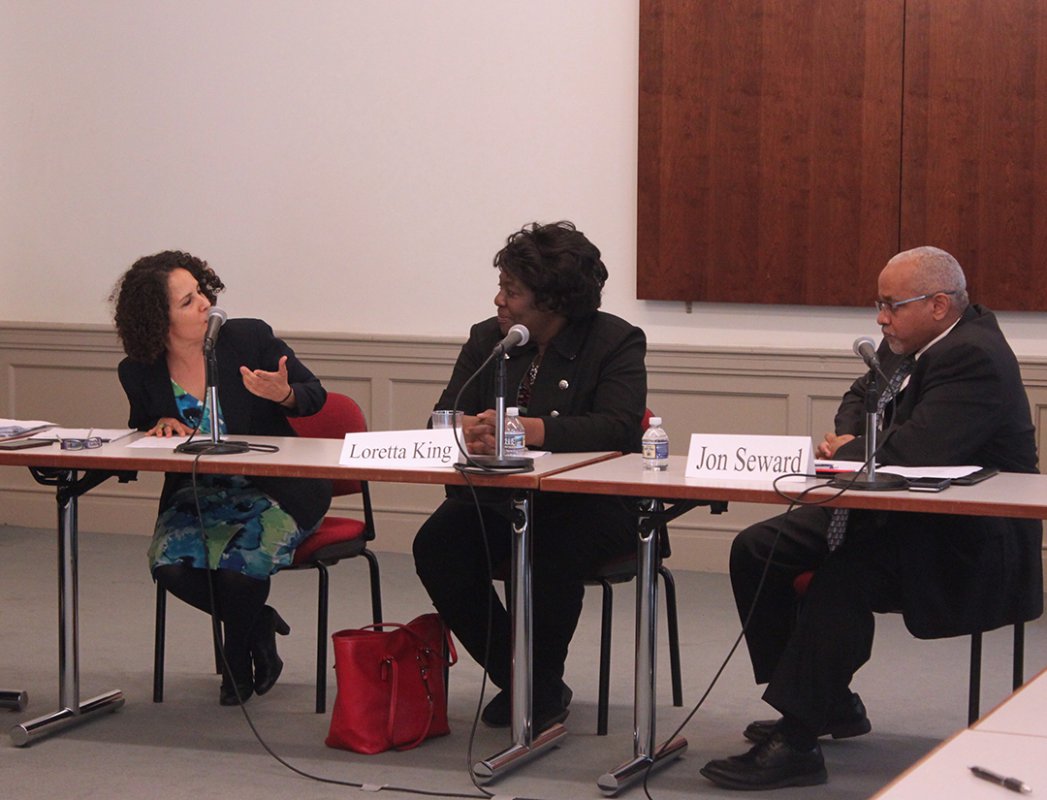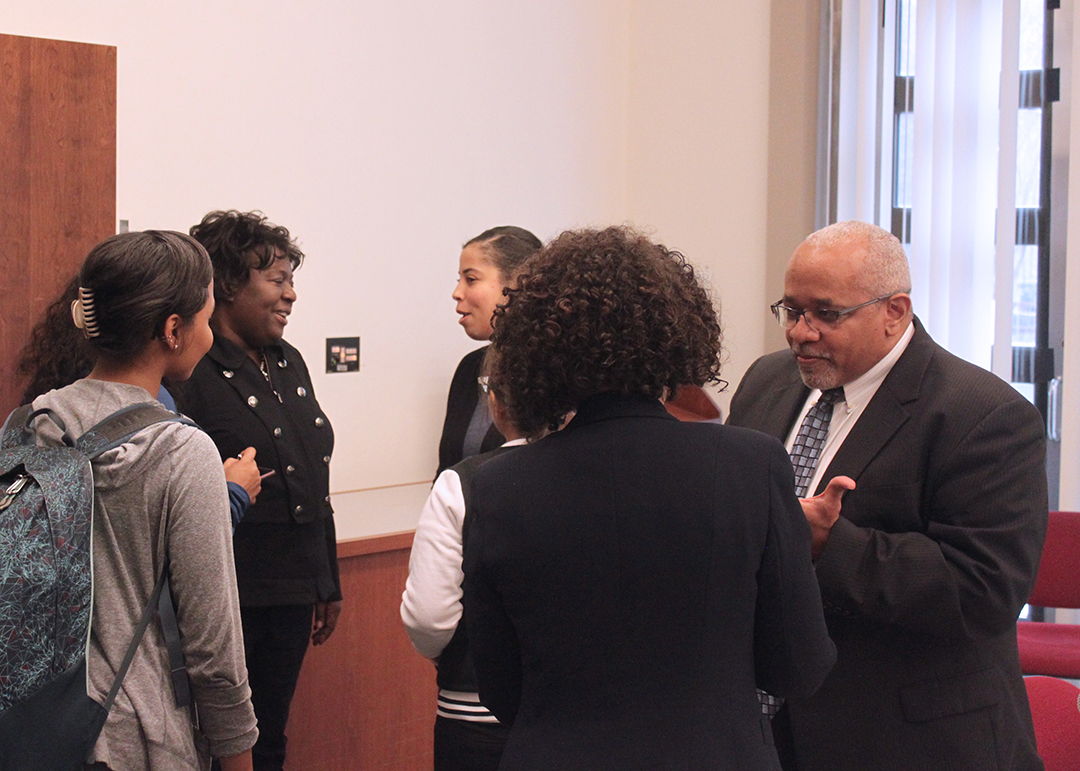
On February 21, 2018, the Black Law Students Association (BLSA) celebrated Black History month with a civil rights panel on the 50th Anniversary of the Fair Housing Act, the 50th year after Dr. King's assassination, and present issues. The panel discussion was anchored in our past, present, and future efforts in furthering civil rights. The panelist included: Jon Seward, Principal Deputy Chief, Housing & Civil Enforcement Section, Civil Rights Division, U.S. Department of Justice, and Loretta King, Former Career Deputy Assistant Attorney General, Civil Rights Division, U.S. Department of Justice. CUA Law Professor Suzette Malveaux moderated the event.
Professor Malveaux opened the event by asking the panelists what led them to a career in civil rights.
King discussed the discrimination she experienced in school as a child and as a university student. "The discrimination I faced in school prompted me to want to make a difference in the lives of other people," she said.
Seward spoke about finding passion for a career in civil rights while working at the U.S. Department of Housing and Urban Development. "The secret to success is coupling passion with your profession. If you can find this everything else will take care of itself," he said. "I found my passion working for HUD as a fair housing attorney. Following the first case I litigated, I received a touching letter that described how I made a difference in a client's life. This really resonated with me."
Professor Malveaux then asked the panelists about common misperceptions regarding their work.
King discussed that it often takes along time to create change, while Seward discussed that some people question why civil rights departments are still needed.
"Some folks wonder why we still need a civil rights division and believe that we are living in a post racial society," Seward said. "This is a misconception because discrimination still exists, it has just become more subtle."
Professor Malveaux also asked the panelists to compare today's #Black Lives Matter and #MeToo Movements to the 1960s Civil Rights Movement.
 King stated that the current movements are much more decentralized than the 1960s movement, but the protests are similar. She also stated that there are parallels between the movements concerning T.V. footage during the 1960s and today's cell phone footage.
King stated that the current movements are much more decentralized than the 1960s movement, but the protests are similar. She also stated that there are parallels between the movements concerning T.V. footage during the 1960s and today's cell phone footage.
Seward and King both agreed that all movements produce future leaders. "I see young people invigorated to stand up and fight for their rights," Seward said.
Finally, the panelists urged students to get informed, volunteer in the community, do pro bono work, sharpen writing skills, and consider pursuing careers in the political arena.
